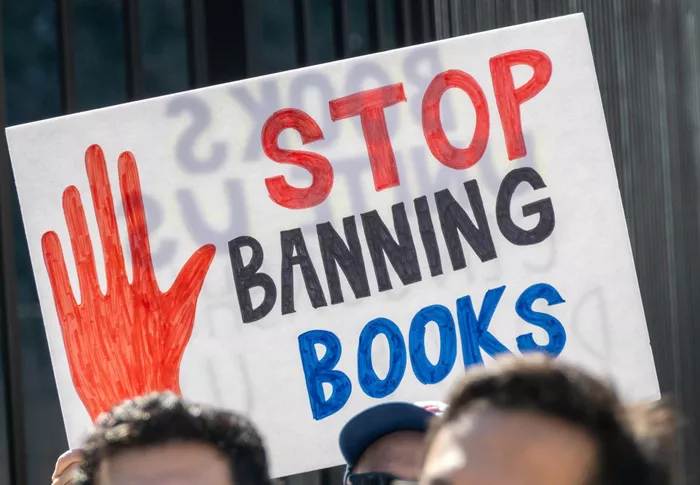A pivotal legal battle is underway that could redefine the constitutional boundaries surrounding book bans in public libraries across the United States.
The landmark case Board of Education, Island Trees Union Free School District No. 26 v. Pico (1982) remains the only U.S. Supreme Court decision addressing book removals from school libraries. In that case, students challenged a New York school board’s removal of several books deemed controversial. The Court ruled 5-4 that the removal was improper, but only three justices affirmed a constitutional “right to read,” leaving the precedent fractured and weak. For decades since, lower courts have struggled to interpret and apply Pico, resulting in inconsistent rulings on the issue of censorship in libraries.
Now, after more than 40 years, a new case — Little v. Llano County — may bring the question back before the nation’s highest court.
The Case Behind the Controversy
Little v. Llano County originated in 2021, when a group of residents in Llano County, Texas, petitioned for the removal of seventeen books from the county’s public library system. Among the targeted titles were In the Night Kitchen by Maurice Sendak, It’s Perfectly Normal by Robie H. Harris and Michael Emberley, and I Broke My Butt by Dawn McMillan. The petitioners labeled these books “obscene” and “pornographic,” sparking a contentious debate.
Though library officials initially claimed the removals were routine “weeding,” the controversy escalated when the county dissolved the existing library board, replacing it with members sympathetic to the challengers and even attempted to close all library branches. Seven residents filed suit, alleging that the removals were content-based censorship violating their First Amendment rights.
The district court ruled in favor of the plaintiffs. On appeal, a three-judge panel of the Fifth Circuit Court of Appeals upheld that decision in June 2024, emphasizing that government entities cannot remove books simply to restrict access to certain ideas. The panel invoked a quote from author Stephen King, underscoring the nation’s hard-fought commitment to free thought.
A Dramatic Reversal
However, the initial appellate victory was short-lived. The full Fifth Circuit court granted an en banc rehearing—a sign that the case was especially complex and significant. At the September 2024 hearing, Llano County’s attorney argued that decisions about library collections represent “government speech” and thus fall under the government’s First Amendment protections. He contended that excluding a book is comparable to a government choosing to cease offering certain services, such as firearms sales or abortion procedures.
Despite previous courts rejecting this “government speech” defense in book banning cases, the Fifth Circuit issued a 10-7 ruling on May 23, 2025, upholding it and overturning the district court’s decision. The majority opinion asserted that while the First Amendment protects the right to receive speech from others, it does not create a right to demand information from the government through taxpayer-funded library books.
The court also overturned a prior precedent, Campbell v. St. Tammany Parish School Board (1995), which had applied Pico as persuasive guidance to protect students’ rights to access certain materials in school libraries. The Fifth Circuit’s ruling now effectively permits public libraries in Texas, Louisiana, and Mississippi—states under its jurisdiction—to remove books for any reason.
The Broader Implications
The plaintiffs in Little v. Llano County must now decide whether to accept this ruling or seek review by the U.S. Supreme Court. While the Supreme Court receives thousands of appeals annually and hears fewer than two percent, there are several factors that may increase the likelihood that this case will be accepted.
First, the Fifth Circuit’s unusual reversal of its own panel’s ruling signals unresolved legal questions that could benefit from Supreme Court clarity. Second, the current Court has shown a willingness to revisit and overturn established precedents in areas such as abortion rights, administrative law, and affirmative action. Given Pico’s ambiguous and divided history, it is a plausible target for reconsideration.
Moreover, Little differs significantly from previous school library cases because it involves a public library, which serves the entire community. Legal scholars, including UCLA’s Eugene Volokh, highlight that public libraries aim to provide broad access to diverse viewpoints, unlike school libraries which may focus on curriculum-related content. In rural counties like Llano, where residents may lack alternative access to books, removing titles from public libraries amounts to an effective ban.
Advocacy groups like EveryLibrary have criticized the Fifth Circuit’s decision for disregarding the realities faced by millions of Americans who rely primarily on public libraries for information.
What Lies Ahead
Should Little v. Llano County or a similar case reach the Supreme Court, the justices will face a critical decision: whether to reaffirm the constitutional right to access diverse ideas in public libraries or to endorse broader governmental discretion that could accelerate censorship.
As the nation grapples with increasing challenges to intellectual freedom, the stakes could not be higher for the future of the freedom to read in America.


